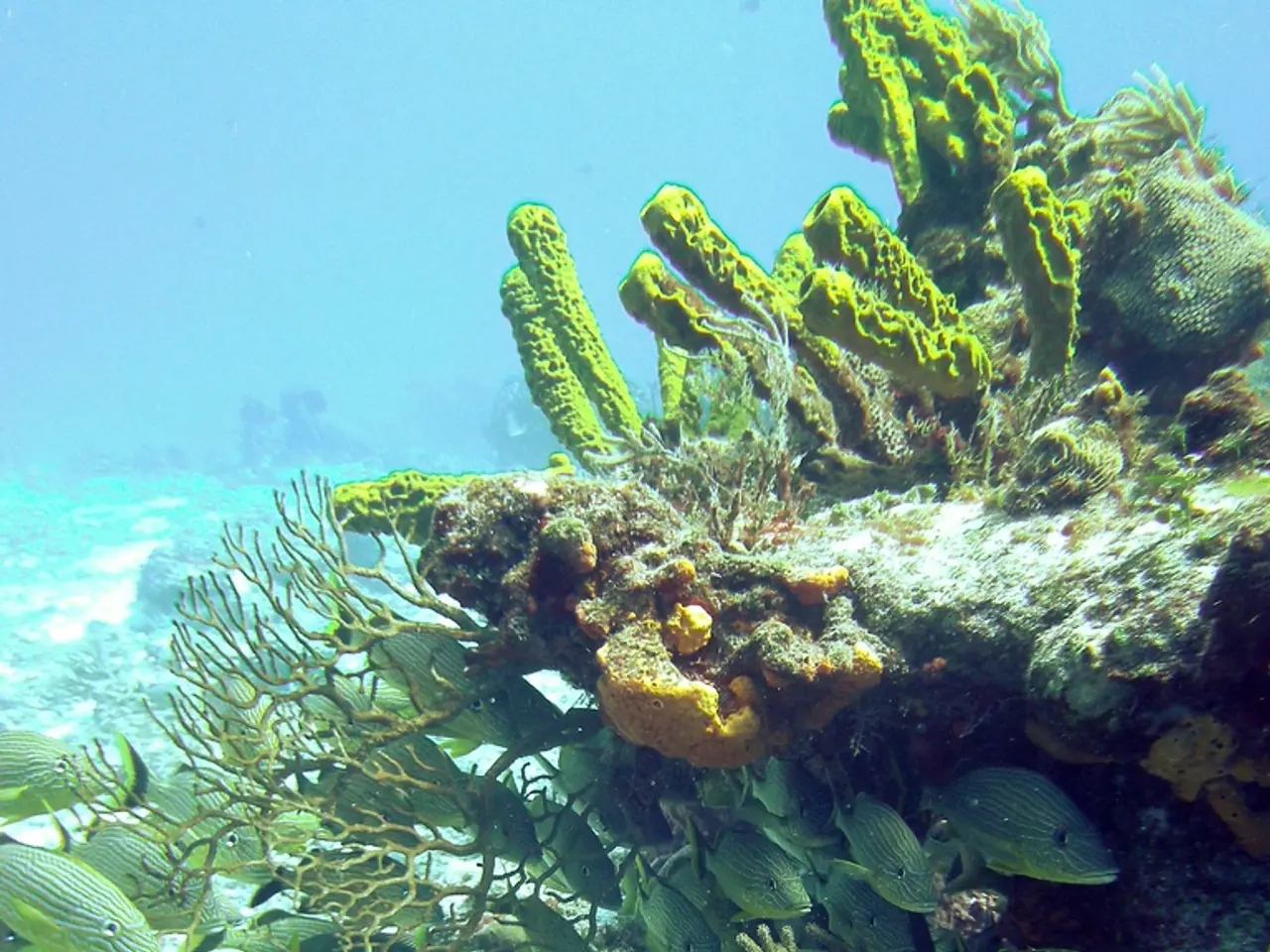Earth's Final Wild Sanctuary, David Attenborough's Ambition: Safeguard the Oceans
David Attenborough, the world-renowned presenter, writer, and narrator of nature documentaries, has released a new book that delves into the depths of our planet's seas. Titled "Ocean. The Last Wild Refuge of Earth", the book reveals the mystery, wonder, and fragility of Earth's most unexplored habitat.
Written in collaboration with his usual partner, Colin Butfield, the book is a call to action for protecting the seas and our planet. It covers eight unique ocean habitats, including coral reefs, deep-sea regions, open ocean, kelp forests, the Arctic, mangroves, islands, and the Antarctic Ocean.
One of the key topics discussed in the book is the daily vertical migration of lanternfish, one of the most numerous groups of vertebrates. These creatures play a crucial role in mitigating the effects of climate change by sequestering millions of tons of carbon in the ocean floor with their droppings.
The book also sheds light on the battles between sperm whales and giant squids, which have never been filmed. The sperm whale, considered the largest predator on Earth, is one of the abyssal creatures extensively discussed in the book.
David Attenborough's commitment to nature spans almost a century. He has filmed in all the ocean habitats of planet Earth, making him uniquely qualified to write about the state of our seas.
The Arctic, defined as "the last frozen region" and "the final piece of the puzzle" in the book, is particularly at risk. The Arctic sea ice is doomed to disappear during the summer months due to the effects of carbon dioxide.
However, the book ends on a hopeful note. A completely restored marine world, even richer and more spectacular than we could expect, is possible if we act now. The ocean, the planet's largest climate regulator, has the potential to recover the fastest if we take decisive action.
The publication of "Ocean. The Last Wild Refuge of Earth" was supported by the World Wildlife Fund (WWF). The book serves as a powerful reminder of the importance of scientific and environmental communication, a field in which Attenborough's influence is extraordinary.
In essence, "Ocean. The Last Wild Refuge of Earth" is a compelling read for anyone interested in the state of our seas, the creatures that inhabit them, and the urgent need to protect them.
Read also:
- Peptide YY (PYY): Exploring its Role in Appetite Suppression, Intestinal Health, and Cognitive Links
- Toddler Health: Rotavirus Signs, Origins, and Potential Complications
- Digestive issues and heart discomfort: Root causes and associated health conditions
- House Infernos: Deadly Hazards Surpassing the Flames








